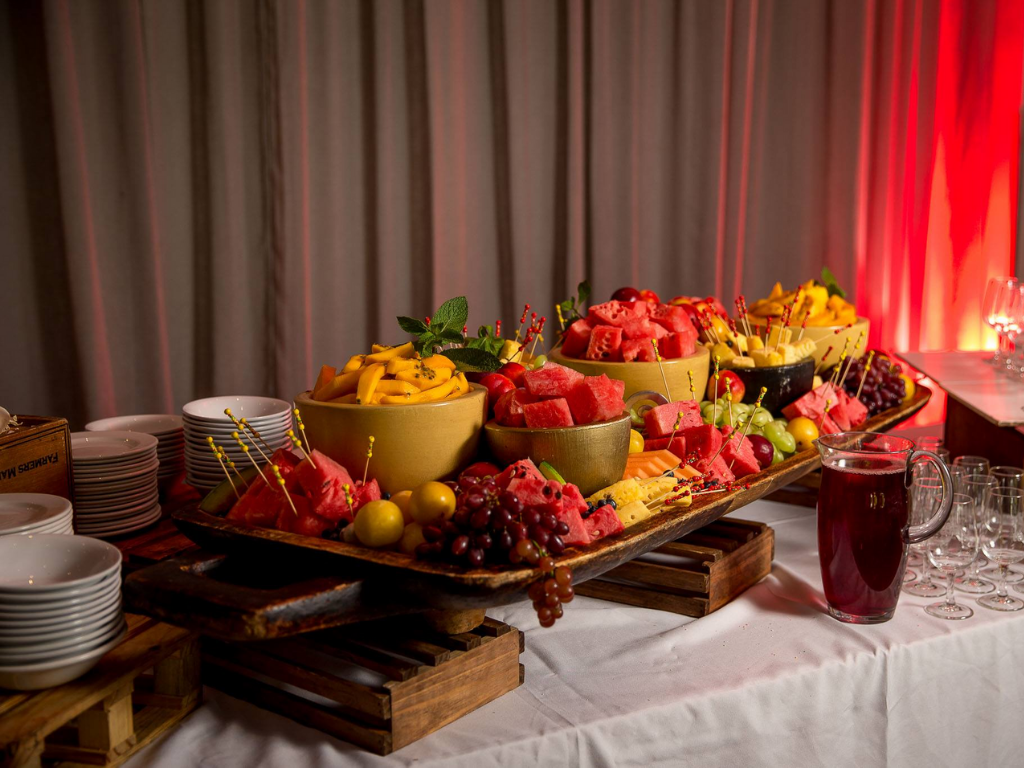
Community

COVID-19 crashes the party for kosher caterers
The sudden closure of Gary Friedman Caterers, one of Johannesburg’s largest and much-loved kosher caterers, has left the community in shock and shone a spotlight on a troubled industry dramatically affected by the pandemic.
During the best of times, kosher catering is tough, the overheads and costs are high, the margins are small, and the community is dwindling, say insiders. During bad times, it’s seemingly impossible, and many are hanging by a thread.
According to many insiders who wish to remain anonymous, the world of kosher is fraught with a toxic blend of favouritism, nepotism, and fierce competitiveness which has led to market cannibalism and an unsustainable future for many.
Kosher industry players are doing what they can to stay afloat. Innovative ideas by one caterer advertised on Facebook are sometimes copied the next day by another, sometimes for less. Several establishments are selling the same products or dishes, often at lower prices than their neighbouring kosher competitors. The exorbitant and rising cost of meat and chicken continues to rear its head and plague consumers.
Even before COVID-19, but certainly during the pandemic, there has been a proliferation of home industries that profess to be kosher but aren’t certified by the Beth Din. These are run by people who are also trying to make an honest living. However, they are having a negative impact on the bigger players who have Beth Din kosher licencing fees, mashgichim fees, high rentals, large staff complements, and other business overheads to account for.
Kosher caterers and restaurateurs have been hit doubly hard by the see-saw, stop-start nature of business during wave after wave of COVID-19 lockdown restrictions. An industry heavily reliant on simchas, celebrations, and festive good times, it has taken an irreparable knock. In spite of impressive pivoting, unprecedented resilience, grit, and hard work, many say it has become too difficult.
“It’s a very difficult time,” said Leonard Meyerowitz of Kosher Pie Works and Jozi Coffee Pizza Pasta. COVID-19 restrictions with no seating at eateries or very limited numbers at functions; the drastic drop to zero simchas from shul brochas, brit milah, weddings, Barmitzvahs and Batmitzvahs have taken a toll.
“Add to this the number of days we are closed because of Shabbos, fast days, and Jewish holidays, rising emigration, not to forget Eskom power cuts, it’s really hard on all of us,” he said.
South Africa has enjoyed being a flagship of kosher food around the world, but it’s slowly losing its big anchor establishments, said one concerned supplier.
Just after noon on Tuesday, 6 July, Gary and his wife, Tamara, dropped the bombshell in a letter to all their clients and suppliers explaining that their company was no longer able to weather the storm of COVID-19.
It brought to an end an era of simcha and revelry at the HOD, where he largely operated from. Friedman declined to comment further.
Several caterers and kosher suppliers this week expressed genuine sadness, perhaps seeing themselves reflected in the mirror of his company’s demise. “I was devastated when I heard the news,” said trained chef and caterer Hayley Hack. “Gary is such a good, kind man.”
Hack and her former partner, Sharon Sheer, parted ways amicably when COVID-19 decimated their once thriving, small catering and function co-ordinating business.
“It simply wasn’t financially viable to work as a team anymore, especially with 90% of our functions being cancelled. We walked away with a heavy heart, but at least we didn’t incur debt. It’s very sad because we were established in the industry,” she said.
In the beginning, they tried to make money by selling delicious salad dressings and delivering meals, but found that it wasn’t viable, so parted ways to work on their own after terminating their contract with function venue The Middleton in Morningside. Hack continues to cater on a small scale and Sheer remains hopeful that functions will resume and things will get better once lockdown is lifted.
Long-time caterer Estelle Sacharowitz of Love is in the Kitchen said she was “heartbroken” when she heard about Friedman. “He has an incredible legacy. This is a sad loss for the industry,” she said.
Ian Isenberg, of Spice Premium Biltong & Butchery said, “Gary is the ultimate mensch in the industry. He gave me a chance as a newcomer, and even when the chips were down for him, he still helped to cater a wedding [last month] for a couple who couldn’t afford it. He did a lot for the community and his staff. This is a huge loss.”
Some caterers who wish to remain anonymous for fear of repercussion say the Gary Friedman closure goes far beyond caterers.
In spite of a humbled Beth Din following the Stan & Pete treif chicken scandal and the continuing saga of the high cost of kosher food, the organisation is seemingly unsympathetic at this time, they say.
“The Beth Din has improved its accessibility and receptivity, but it’s still not customer-centric and now more than ever, it needs to be,” said one kosher caterer who wished to remain anonymous.
“Where is the Beth Din now when we need all the support we can get?” asked another.
“Kosher food and catering is prohibitive. The Beth Din has to do something about the exorbitant cost of kosher meat and chicken, end of story,” said another commentator, who also wished to remain anonymous. “Kosher chicken breasts cost between R244 and R268 per kilogram. Something isn’t right. It has become utterly unaffordable, and it’s affecting caterers and restaurants.
“Young couples are battling to keep kosher. Many are deciding it’s easier not to. My biggest concern is that kashrut is going to be diluted as more and more people resort to ‘kosher style’ food which is not under the Beth Din, like you see happening more and more in places like Australia.”
Rabbi Dovi Goldstein, the managing director of kashrut at the Beth Din, said the closure of Gary Friedman Caterers had come as a “huge blow to all of us”.
“We are in discussion with Gary as to various possibilities of how to assist him,” he said.
Kosher SA remained dedicated to ensuring the highest kosher standard, Goldstein said. “At the same time, we will continue to look at ways to assist all our establishments. We have, to date, provided payment holidays across the board during hard lockdowns, and extended help on a case-by-case basis.
“We are deeply concerned about the difficulties that all our certified food services are going through.”











Roni
July 22, 2021 at 12:30 pm
Are you really “deeply concerned” about the difficulties your certified food services are going through? Is that why you inflated their fees, making kosher unaffordable to them and products unaffordable to us mere mortals?